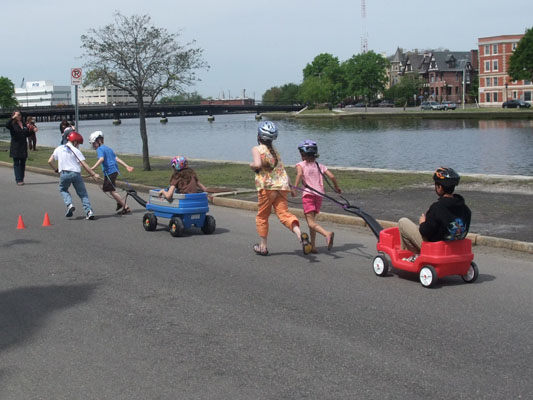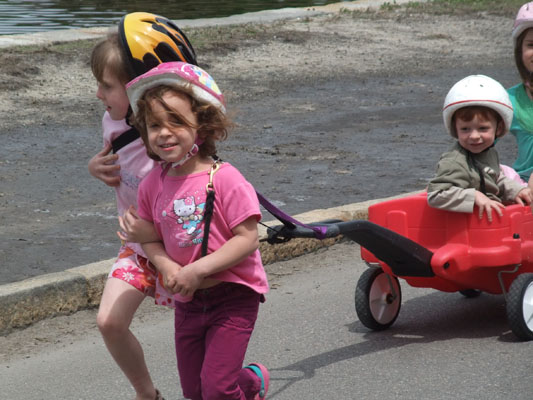 This post relates to my literature class for children at Homeschool Out of the Box co-op in Norfolk, VA. This semester we are reading The Aeneid, using Penelope Lively's book In Search of a Homeland, and other supplemental materials. For other lessons, please click the Aeneid tag at the bottom of this post.
This post relates to my literature class for children at Homeschool Out of the Box co-op in Norfolk, VA. This semester we are reading The Aeneid, using Penelope Lively's book In Search of a Homeland, and other supplemental materials. For other lessons, please click the Aeneid tag at the bottom of this post.Welcome: Today we met outside! The weather was beautiful, perfect for our purposes. We sat on the grass and spent a little bit of time taking the quiz on the Underworld. The enrichment class sang through a few of our songs. Then we learned about the Circus Maximus, the organization of a chariot race, and other relevant facts.
Chariot Race Philosophy Lecture: We focused our discussion on one significant difference between our culture and the culture of Ancient Rome, as illustrated by the clip from "Ben Hur." In the old days, if someone fell out of the chariot, do you think the emperor clapped his hands and called a halt to the race? "Hold on guys, let's take a break and make sure that Maximus is ok! Can we get a stretcher out here?" NO! If Maximus fell out of his chariot, that was his own dumb luck, and if his friends managed to drag him out of the way before the horses came around again, good for them. If not, bad for him.
At this point it's important to do whatever is necessary to communicate to your students that you are about to say something very serious. Maybe stand on a chair. Maybe flap your arms around. Maybe glower. Then tell them that in this respect our culture is *VERY DIFFERENT* from the Roman culture. While the Roman's primary interest in chariot races was entertainment (and they found gruesome injuries profoundly entertaining), our primary interest in chariot races is SURVIVAL. Have them say it out loud: SURVIVAL. I actually had each one individually say it back to me. What is the most important thing today? SURVIVAL. And what constitutes survival? Not falling down, not falling out of your chariot, not causing your charioteer to fall out of his/her chariot, not causing your co-horse to fall over.
I told them clearly that we were creating a spectacle, not a real race, and that while no prizes would be awarded for winning, I would be awarding citizenship coins for safe behavior. As it turns out we only had one injury -- one of our horses scraped up her ankle -- and everyone got their citizenship coin. Looking back on the experience, I'm pretty amazed that someone didn't fall in the Hague or something, but we all had helmets on, and you know that often prevents excitement. Right?
Chariot Race Activity:
To carry off a chariot race the way we did, you will need a wide open space, preferably without traffic. We had a low traffic street that we were able to stop the few cars from coming through during the races. You'll need a mom at the start, a mom at the turn, a mom to help the emperor do his/her job, a mom to orchestrate the horn blowers, a mom to man the first aid station, etc. Then you need the following items:
2 large wagons.
8 dog leashes (four on each wagon, two pairs clipped together to harness the "horses")
Safety helmets
Traffic cones
Emperor chair, costume, and a hankerchief to drop to begin the race
Horns (gift paper tubes, pvc pipe, etc)
Here are pictures:





And here's one video:
For many more pictures and videos, please visit the chariot race Flickr set.
As you can see, we had a great time. Thanks to all the parents and helpers that made it a safe and happy experience for the kids, and thanks to all the kids who really adopted a spirit of cooperation and fun. Yay for chariot races!

